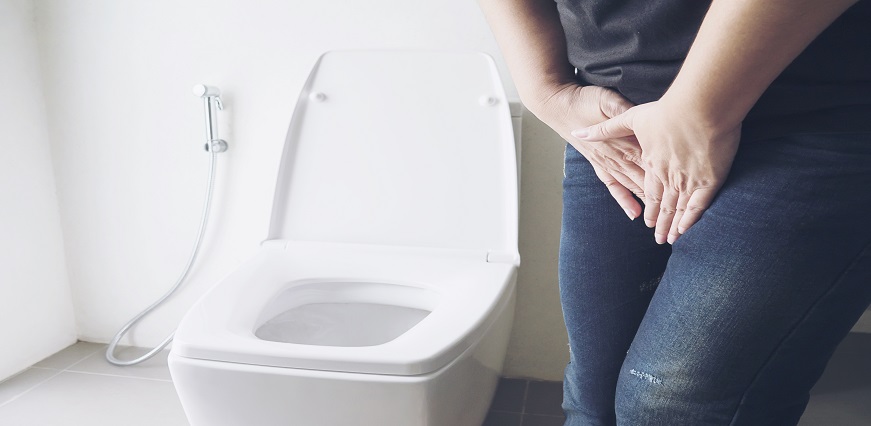





No lab centers are available in this city

Max Lab
Nov 11, 2022
A urinary tract infection (UTI) is an infection in any part of the urinary system, the kidneys, bladder, or urethra. Symptoms of a UTI include the frequent and painful need to urinate, increased urge to urinate, lower abdominal pain, and difficulty urinating. Usually, UTIs are caused by bacteria from your intestines getting into your urinary system through the urethra or by bacteria found naturally in your vagina or on your skin.
A urine infection (UTI) is an infection in any part of your urinary system — your kidneys, ureters, bladder, and urethra. Most infections affect the bladder and urethra, which are parts of the lower urinary system.
UTIs are a common type of infection. In fact, they’re the second most common type of infection in the body after respiratory infections. UTIs are more common in women than in men. About 20% to 30% of women will have at least one UTI during their lifetime.
UTIs can occur at any age, but they’re most common in young women and girls who are sexually active. That’s because sexual activity is a major risk factor for UTIs. Other risk factors include:
The burning sensation you experience while urinating is the most typical sign of a UTI. You may also have cloudy or bloody urine, or you may feel the need to urinate more frequently than usual. If the infection spreads to your kidneys, you may experience back pain, fever, chills, or vomiting.
When bacteria enter and grow in the urinary tract, a urinary tract infection (UTI) develops. The burning feeling experienced when peeing is the most typical sign of a UTI. Other symptoms may include:
Urinary tract infections can have a variety of reasons. Escherichia coli (E. coli), a kind of bacteria that resides in the intestines, is the most frequent culprit. When these bacteria get into the urinary tract, they can cause an infection. Other causes of UTIs include:
If you think you might have a urinary tract infection, it’s important to see a doctor as soon as possible so that you can start treatment. There are some home remedies you might use in the interim to reduce your symptoms.
The most common symptom of a urinary tract infection is a burning sensation when you urinate. You may also have the urge to urinate more often than usual, but only be able to produce small amounts of urine each time. Other symptoms include:
If you have a urinary tract infection (UTI), you may be wondering what foods are safe to eat and which ones you should avoid. While there is no one-size-fits-all diet for people with UTIs, there are some general guidelines that can help you make choices that will ease your symptoms and promote healing.
In general, you should aim for a diet that is high in fluids and fiber and low in sugar, caffeine, alcohol, and spicy or acidic foods. Drinking plenty of fluids helps to dilute your urine and flush out bacteria. Fiber promotes regularity, which can also help to flush out bacteria. And avoiding sugary foods, caffeine, alcohol, and spicy or acidic foods will help to minimize irritation of the bladder and urethra.
Some specific foods that are often recommended for people with UTIs include:
When germs enter the urinary system, a urinary tract infection (UTI) develops. The burning feeling experienced when peeing is the most typical sign of a UTI. Other symptoms may include cloudy or bloody urine, a strong urge to urinate, and pelvic pain in women.
When you have a urinary tract infection, you may experience pain or burning when you urinate. You may also feel the urge to urinate more frequently than usual. These symptoms can be caused by dehydration, so it’s important to drink plenty of fluids to help flush out the bacteria from your system.
Water is the best fluid for flushing out bacteria, but you can also drink cranberry juice, which is thought to help prevent UTIs by making the urine more acidic and thus less hospitable to bacteria. Other fluids that can help include unsweetened green tea and sugar-free gelatin.
A diet rich in Vitamin C can help boost your immune system and fight off infection. Vitamin C is found in many fruits and vegetables, including oranges, strawberries, Brussels sprouts, and kale. You can also take a Vitamin C supplement to increase your intake.
Cranberry juice can help to flush out the bacteria that causes a urinary tract infection. It is also rich in Vitamin C, which can help to boost the immune system and fight off infection. Drink unsweetened cranberry juice several times a day, or drink it throughout the day as part of your water intake. You can also take cranberry supplements in capsule form.
Live bacteria known as probiotics have been shown to have positive effects on health. They are available in supplement form or in certain foods, such as yogurt.
While there is no evidence that probiotics can cure a urinary tract infection (UTI), they may help to prevent future infections. Probiotics can also help to reduce the severity and duration of symptoms if you do develop a UTI.
If you are considering taking probiotics for a UTI, it is important to speak with your healthcare provider first. This is especially important if you have a history of kidney stones or other medical conditions.
When it comes to urine infection, cleanliness is key. Be sure to practice healthy hygiene habits in order to prevent the spread of infection and keep your urinary tract healthy. Here are some tips:
There are many different home remedies for urine infections that you can try. Some of the most popular ones include drinking cranberry juice, taking probiotics, and consuming more water. While there is no guarantee that any of these remedies will work for everyone, they are definitely worth a try if you are suffering from a urine infection.
Maxlab offers an exhaustive list of tests for a comprehensive diagnosis of your health. Take a look at Urine Culture & Sensitivity Test for detecting any urine infection in the body.












Sign up takes less than 60 secs and gives you access to your offers, orders and lab tests.
Looks like you are not registered with us. Please Sign up to proceed
OTP will be sent to this number by SMS
We have successfully received your details. One of the agents will call you back soon.
 To reach our help desk call 9213188888
To reach our help desk call 9213188888
No Lab Centers are available in this city
Looks like you are not registered with us. Please Sign up to proceed
OTP will be sent to this number by SMS
Not Registered Yet? Signup now.Looks like you are not registered with us. Please Sign up to proceed





 7982100200
7982100200.png)
Comments